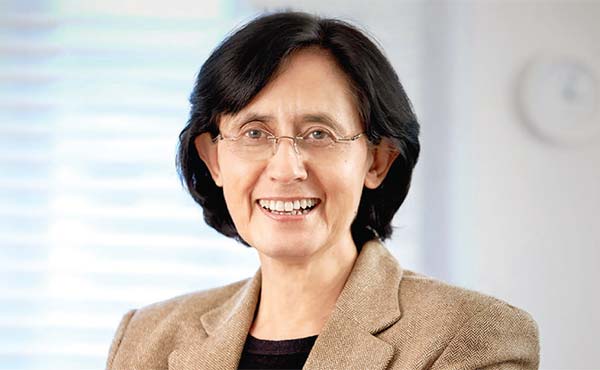Think tanks can help businesses better understand the key ecosystems within which they operate.


With a four-decade career in business, Ms Vinita Bali has been at the helm of reputed Indian and international companies. Throughout her illustrious career, she has witnessed several changes in the business world, leading her to believe that an essential quality of a leader is the ability to understand context and make appropriate decisions. Context, according to Ms Bali, is an ever-shifting paradigm. Businesses function simultaneously within various contexts, such as the geopolitical context, national context, competitive context, individual talent and management context, etc. A good leader considers all these and makes informed decisions. While she acknowledges that no one person can know all this, she believes that an essential aspect of leadership is the ability to listen, absorb and coalesce information. “One person cannot be an expert on everything, but every expertise is out there, so leaders must reach out, listen, engage, reflect and then decide.” Along with being a good listener, leaders must have an inquisitive mind and be able to process the information and advice given to them. This is quintessentially what leadership is about, opines Ms Bali. According to her, think tanks can help businesses better understand the key ecosystems within which they operate. When business leaders consult such organisations, they are presented with different perspectives and data from which they can draw inferences about the issues at hand. She also believes that a good thinktank must be non-partisan.
A businesswoman who has proven that gender is no hindrance to her successes, Ms Bali believes that true
leadership is gender-agnostic. She believes that the demands of leadership vary and change depending on the context. With Russia invading Ukraine earlier this year, several business and political equations have been redrawn and will have a differential impact on industries and domains. Business leaders, therefore, need to understand the implications of this war on their industry.
Globalisation has facilitated linkages across every part of the world. Until the recent COVID-19 pandemic, however, business leaders had never really questioned the risks inherent in this concept. It was only when the pandemic hit that they started to introspect about the many and varied implications of globalisation. The recent Russia-Ukraine war has only added to this soul-searching among businesses. “Companies, businesses and countries are thinking about how they can deal with global supply chains, now,” she said.
Being empathetic, compassionate, a good listener, understanding text, sub-text and context, are all attributes of an effective leader. Understanding that we work within a much larger ecosystem is also essential. The pandemic has forced us to see how we are all connected within this particular ecosystem, and how our behaviour and decisions impact the ecosystem itself. Therefore, any decision must emanate from robust and comprehensive analysis and thorough dialogue, as we will collectively reap its consequences. “We must distinguish between leadership and leaders”, noted Ms Bali, as she explained how titles and positions can often be confused with effectiveness and attributes. Leadership is about behaviour - big titles do not necessarily imply effective leadership qualities. Ultimately, effective leadership is about authenticity, character and integrity. A true leader is one who leaves the world a better place than the one they inherited, she concluded.